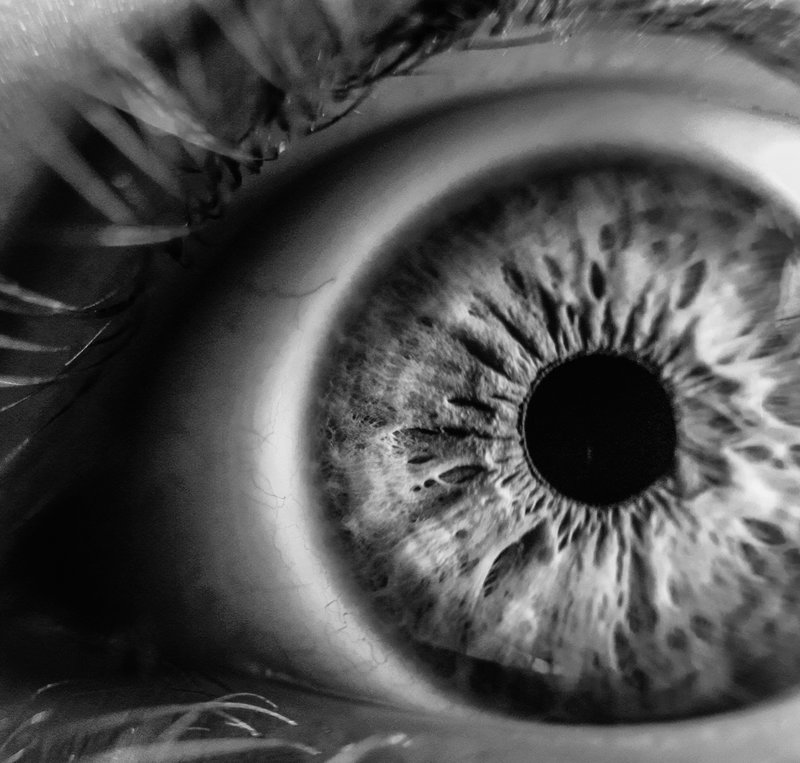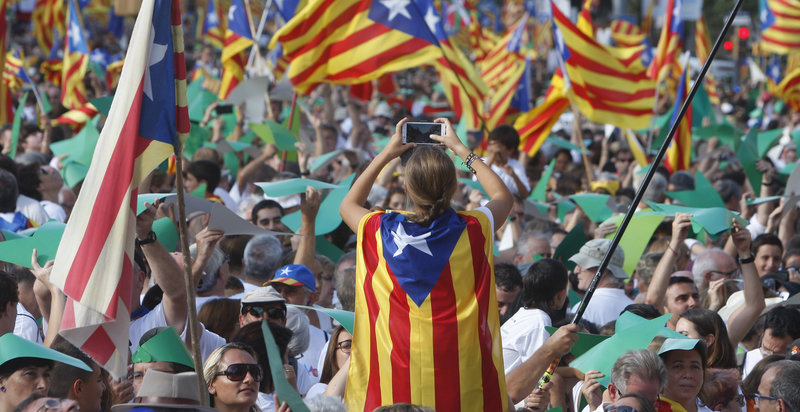2020s: the disruptive decade
A democratic crisis, climate change, and technological progress are factors that will change our lives in the coming years
The 1920s was a crazy period. The ’Roaring Twenties’ saw Communism spread, while the western world enjoyed economic prosperity. It was also the era of the Charleston dance craze, and a time of revolutions, from women winning the vote to the rise of the Surrealism. Yet, it was also the decade in which the roots of the Second World War would be laid.
A hundred years later, the word ’crazy’ could also apply. In the next decade we will face global challenges, from climate change and the exponential growth of technology to the redefinition of individual and collective identity. And managing all this, with the challenges of governance and decision making, will be the priority.
Tension and inequality
“In the next few years, society’s demographic situation will mean the balance between the world’s economic, social and political systems will be more tense. The systems of intergenerational and class solidarity, the nation state as a structural figure, immigration… are tensions that will grow. What we don’t know is whether they will continue to cause the exclusion of ever more collectives from the political process and so increase inequality and disaffection,” says UAB political science researcher, Berta Barbet.
What could also emerge is a form of politics that looks for spaces of inclusion. “A rethink that allows people without resources to improve their situation, a project that is not social democracy understood as a state that collects taxes, but rather a structure on a different level, perhaps a supranational level. The great challenge is whether the current tensions turn into a reaction that allows for people to become involved in decision making, or whether we continue with the current dynamic,” says Barbet.
Participation
For the expert in forward planning, Jordi Serra, the process of collective decision making must be expanded, enhanced and diversified. “Today, we have many options for participating, but perhaps in the future people will want to choose their representatives differently, closer to the way we choose those who represent us in commercial matters, with contracts and parameters. If the representative does not keep to them, we can get rid of them, with each person deciding to what extent they want to be represented,” he says. “In my case, I’m happy for someone to make decisions for me in matters of energy policy, because I don’t know much about it, but if I were an expert in genetic engineering, maybe in those matters I’d want to decide for myself. This diversification is possible, but is hard to take on board mentally,” he adds.
The future of Catalonia
Professor of political science at the UB, Xavier Torrens, thinks it will be difficult to increase political participation in social movements in the short term “as they have had high participation for a long time, and are showing signs of fatigue; the most recent public protests were not as big as before.”
On the possibility of Catalonia achieving independence, Torrens thinks that we will only see an independent republic during the next decade if two key factors are in place. “First, that the percentage of Catalans in favour of independence goes above 50%. And second, that another window of opportunity opens up, as one did on October 10, 2017, when journalists from all over the world focused on Catalonia, after the police brutality on October 1 and the belligerent message from the King of Spain that followed.”
Citizens and states
For Serra, the Catalan issue shows that the Spain that came out of the transition to democracy is “in a supercritical phase”. “Does that mean Catalonia will be independent? It doesn’t guarantee anything. All it does is expose that the Spanish system as it is is falling apart, and that they were unable to see the Catalan issue as an opportunity to take it to a higher level. Right now, nation states are more a part of the problem than the solution. At one time they allowed for progress and throwing off the yoke of feudalism, but now they have become another yoke,” he says.
That’s why Serra believes we could move towards a different type of participation. “Today’s technology allows for creating structures that do not necessarily have to be linked with a territory. The big barriers to big change are not physical or technological, but rather cultural and mental,” he says.
According to Barbeta, what is happening in Catalonia could lead to three scenarios: that the conflict becomes increasingly polarised, that it becomes more inclusive with a debate in which everyone can play a part, or that it stays as it is, but beyond the institutions, which cannot manage it. “This would mean continuing with the current situation. The institutions would be disconnected, closed in on themselves, but the social tensions would continue. To a large extent it will depend much more on the leadership that might emerge,” she says.
Managing conflicts
One unknown of the next decade is what will happen with populist movements. “We give the name populism to things that are very different. If we see such movements as questioning the major institutions of liberal democracy, then there are two possibilities: that they are wildly successful or that they end up failing because they serve little purpose and stop being relevant,” says Barbeta.
Populism can be understood as a trend that is not so much about opposing liberal democracies, but about rethinking certain forms of consensus and changing structures, the European Union for example. “It could mean moving towards a world in which politics is more inclusive and going back to a society based on agreement,” she adds.
For this political scientist, there are a number of future scenarios: the end of democracies as we know them and the establishment of conflictive Trump or Putin-style politics; the failure of populist movements and institutions turning in on themselves to generate technocratic societies; or a scenario of “intuitive” populism that creates new forms of consensus. “Depending on which type of politics we get, we will get a different response to problems such as climate change, immigration, inequality,” she says.
For his part, Torrens forecasts that in the next few years the far right will increase its influence on society. “That’s not a potential future scenario, but rather a crude reality that’s already started and will go on at least for a few years. Sadly, the expression of prejudices will be on the rise,” he says.
At the same time, another element that will become more established, which we are already seeing, is the end of classic bipartisanship. Torrens makes a prediction about the next election in Catalonia. “The system of Catalan parties that will emerge in the Catalan election to take place in 2020 will produce an electoral result that will open up a new Catalan parliament, with the pro-independence parties having more weight,” he says. And as for the Spanish panorama, he believes it will come down to two parties on the left, the Socialists and Podemos, and two parties on the right, PP and Vox. “And all conditioned by the four nationalist parties: ERC, JxCat, PNB and EH-Bildu,” he adds.
Further challenges
Both on the global and the local level, another major challenge in the future will be bringing an end to corruption. Technology can help foster transparency in governments’ decision making, although Torrens warns that “corruption will only decrease in line with an increase in handing prison sentences and penalties to political parties.”
It is also clear that technological advances will allow for secure voting online, which is only a matter of time. Meanwhile, new security systems will help to make sure that data are not manipulated. This is the sphere in which the struggle against cyber-attacks and terrorism will take place at all levels.
New wars
As for armed conflicts, the war in Syria might end “but the tragic consequences will continue for the refugees and the impoverishment of thousands of families subject to a tyrannical regime,” says Torrens. “The decade of the 2020s,” he adds, “will continue to bring wars in the Middle East as long as Arab countries do not become democratic states.”
The experts also argue that attention should be paid to Latin America. “Many people don’t know it, but the continent with the most inequality is not Africa, which is the poorest, but Latin America. The fight against corruption is the main tool for combating Latin American poverty, but governments there are usually heavily corrupt, whether on the right or the left,” he concludes.
Yet, Serra points out, the complexity of these situations makes it almost impossible to know what will happen with certainty. But that does not mean we should not be prepared. “Mass demonstrations show that there are people who want change. However, it is reality that will have the final say.”
dossier
dossier
Liquid democracy
The concept of liquid democracy mixes direct and representative democracy. In this system, all citizens can take part in decision making through a virtual vote. If they decide to, in some situations they can delegate their decisions to political parties, but always with the option of taking it back when they want. It is a more active form of participation than simply voting every four years. Yet, it is an idea that still has to take root. “The problem is not liquid democracy but the liquidation of democracy, like for example in some countries in Eastern Europe, where governments say they are liberal democracies, when democracy always requires the collective will of the majority in regard to the individual freedoms and rights of minorities,” Xavier Torrens says.
2030 Agenda
Passed by the United Nations in 2015, the 2030 Agenda is a new global roadmap for achieving a series of goals in the next decade. The plan includes 17 Sustainable Development Goals that cover social, economic and environmental sustainability and tackle five major spheres: planet, people, prosperity, peace and alliances. Among the goals of the plan are such aims as eradicating hunger, guaranteeing a quality education, achieving gender equality, ensuring access to water, promoting economic growth, and facilitating access to justice.




